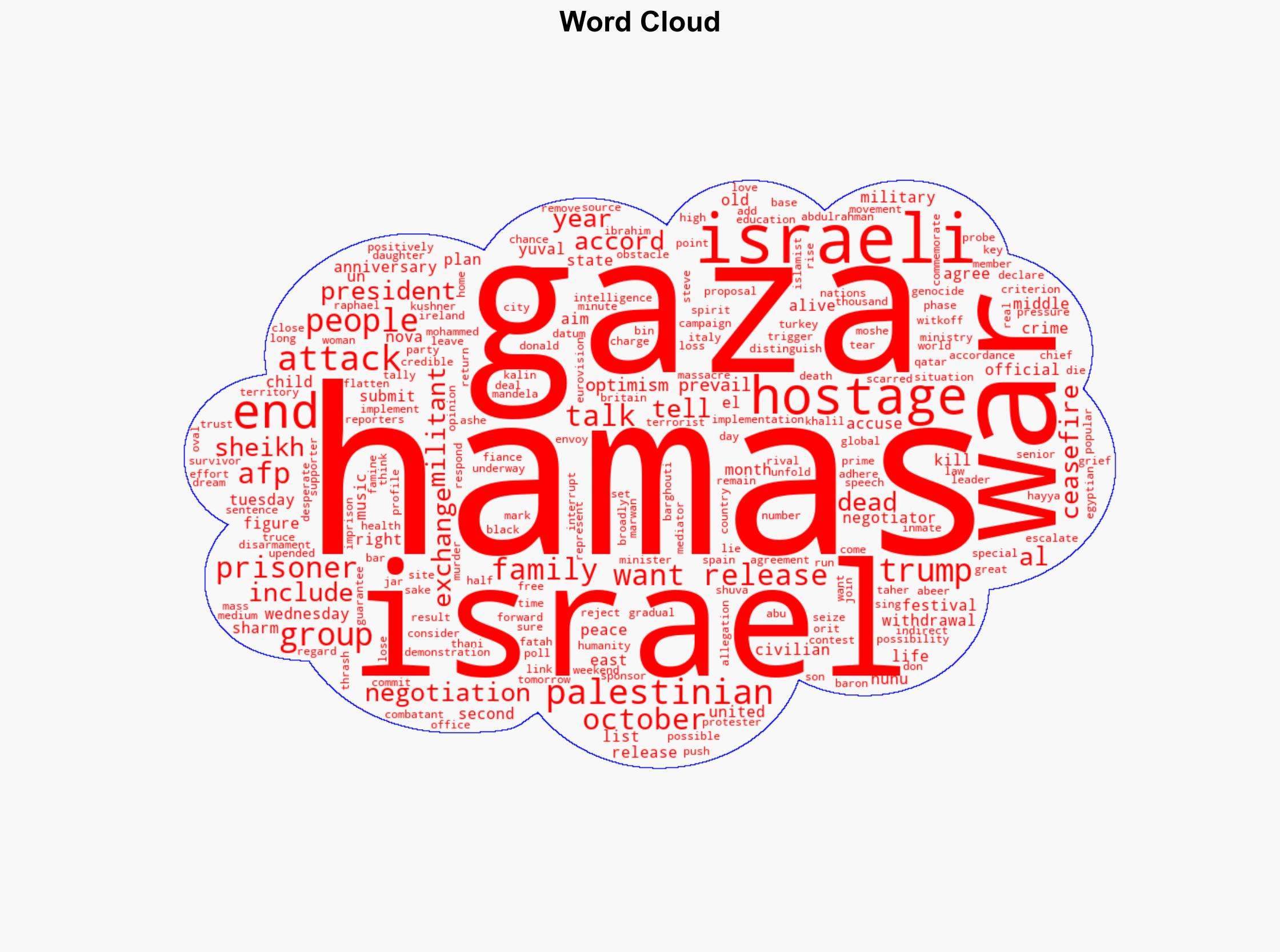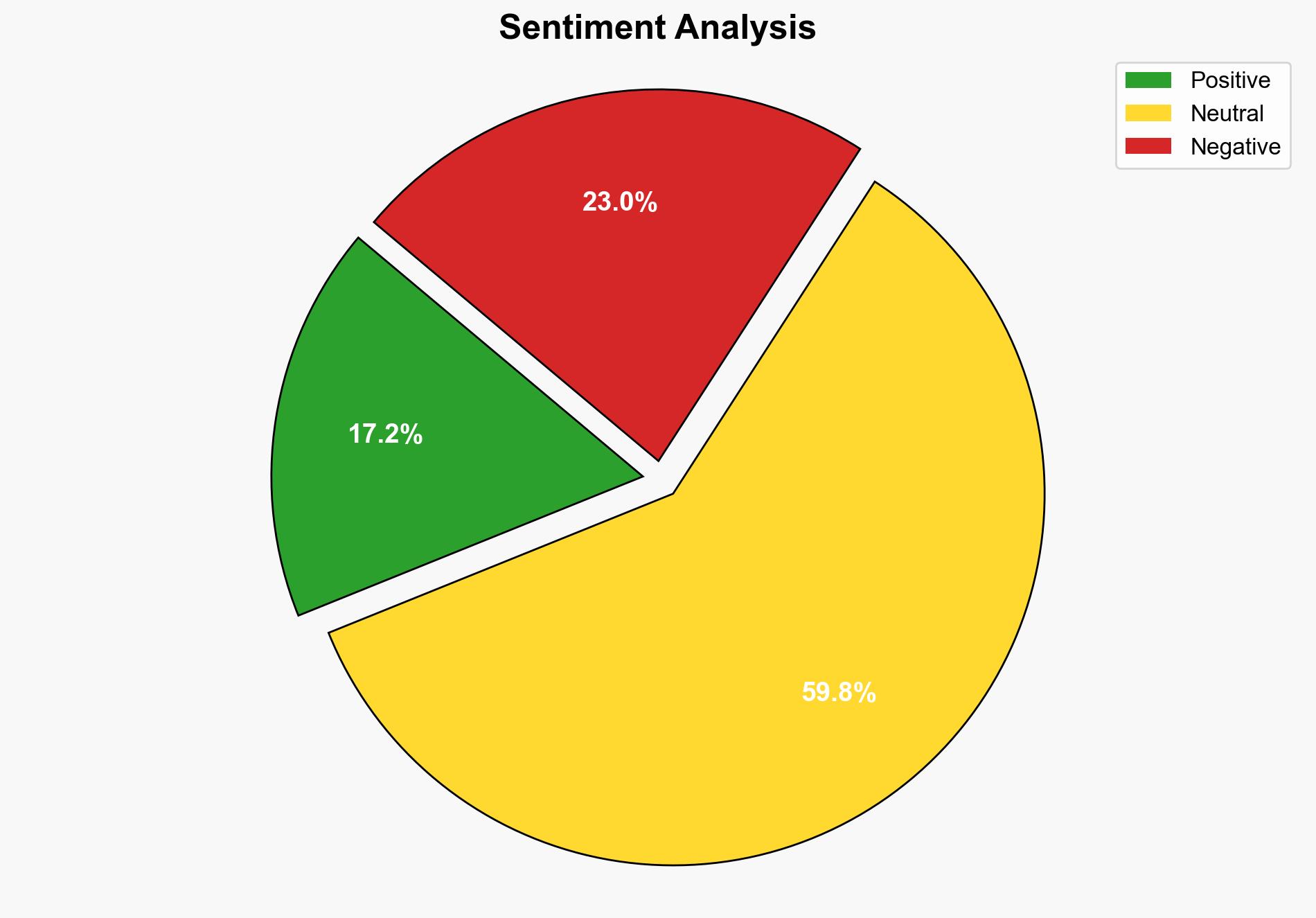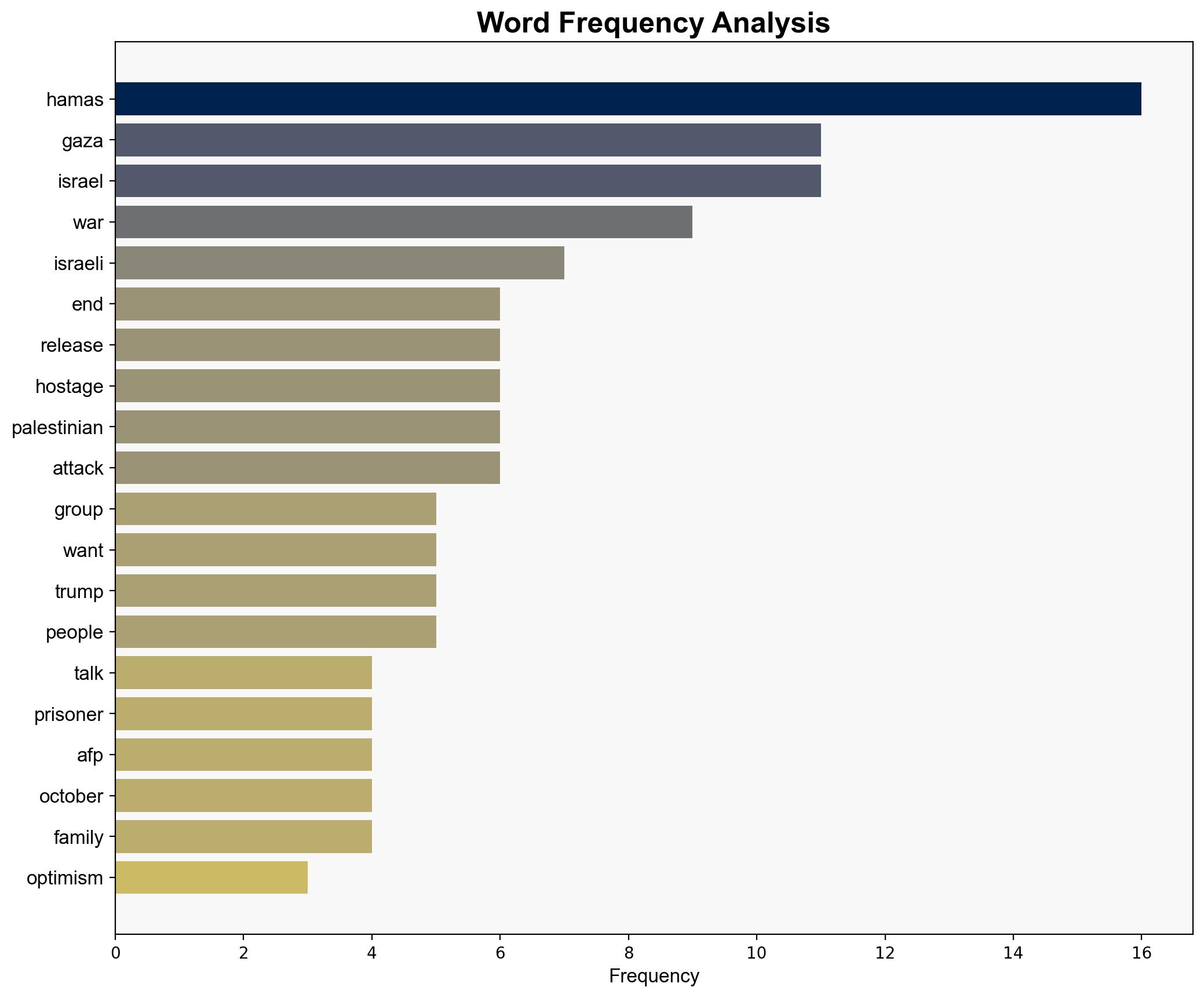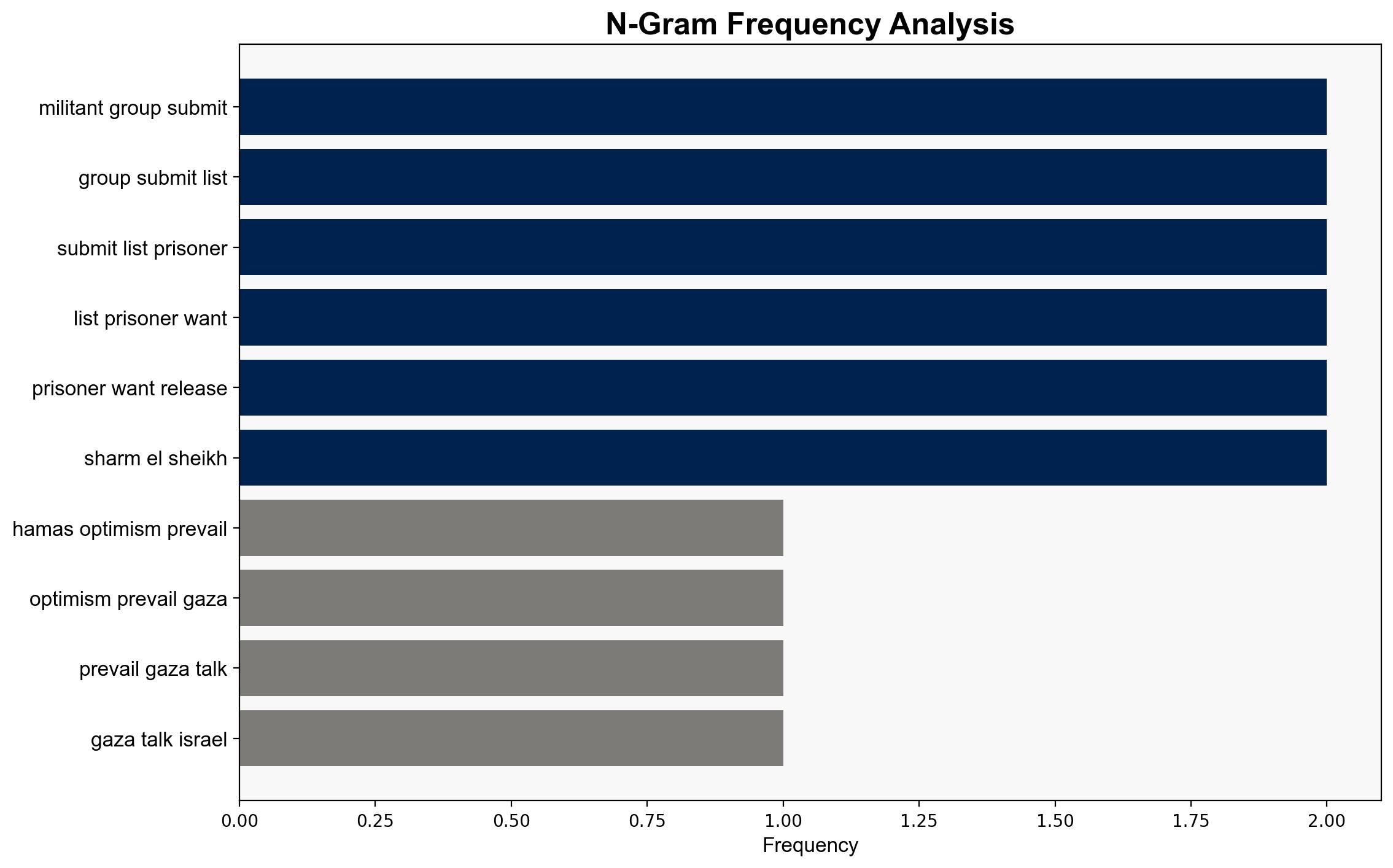Hamas Says ‘Optimism Prevails’ In Gaza Talks With Israel – International Business Times
Published on: 2025-10-08
Intelligence Report: Hamas Says ‘Optimism Prevails’ In Gaza Talks With Israel – International Business Times
1. BLUF (Bottom Line Up Front)
The most supported hypothesis is that the ongoing negotiations between Hamas and Israel are primarily a strategic maneuver by both parties to alleviate international pressure and achieve temporary de-escalation. Confidence level: Moderate. Recommended action: Monitor developments closely while preparing for potential breakdowns in talks, given historical volatility and entrenched positions.
2. Competing Hypotheses
1. **Genuine Progress Hypothesis**: The negotiations represent a sincere effort by both Hamas and Israel to reach a long-term peace agreement, driven by mutual recognition of the unsustainable nature of the conflict and external diplomatic pressures.
2. **Strategic Maneuver Hypothesis**: The talks are a tactical move by both parties to temporarily de-escalate tensions and manage international pressure without a genuine commitment to long-term peace, using the negotiations to gain strategic advantages such as prisoner exchanges and territorial concessions.
Using ACH 2.0, the Strategic Maneuver Hypothesis is better supported due to historical patterns of failed negotiations and the complex political dynamics involving external actors like Qatar, Turkey, and the U.S.
3. Key Assumptions and Red Flags
– **Assumptions**: Both hypotheses assume that external diplomatic pressure significantly influences Hamas and Israel’s decisions. The Strategic Maneuver Hypothesis assumes that both parties prioritize short-term gains over long-term peace.
– **Red Flags**: The absence of concrete commitments or timelines in the negotiations raises doubts about their sincerity. The involvement of multiple external actors could complicate and prolong the process.
– **Cognitive Bias**: Confirmation bias may lead analysts to overemphasize past negotiation failures, potentially overlooking genuine progress.
4. Implications and Strategic Risks
– **Geopolitical Risks**: A breakdown in talks could lead to renewed hostilities, impacting regional stability and international relations.
– **Psychological Impact**: Prolonged uncertainty may exacerbate civilian distress and undermine trust in future negotiations.
– **Cascading Threats**: Failure to reach a sustainable agreement could embolden extremist factions, increasing the risk of asymmetric warfare and terrorism.
5. Recommendations and Outlook
- Enhance diplomatic engagement with key stakeholders to encourage transparency and accountability in the negotiation process.
- Prepare contingency plans for potential escalation scenarios, including humanitarian aid and conflict mitigation strategies.
- Scenario Projections:
- Best Case: Successful negotiation leads to a durable ceasefire and gradual normalization of relations.
- Worst Case: Talks collapse, resulting in intensified conflict and regional destabilization.
- Most Likely: Temporary de-escalation with intermittent skirmishes and ongoing diplomatic efforts.
6. Key Individuals and Entities
– Taher al-Nunu
– Sheikh Mohammed bin Abdulrahman Al Thani
– Ibrahim Kalin
– Steve Witkoff
– Jared Kushner
– Marwan Barghouti
7. Thematic Tags
national security threats, regional focus, diplomatic negotiations, conflict resolution




